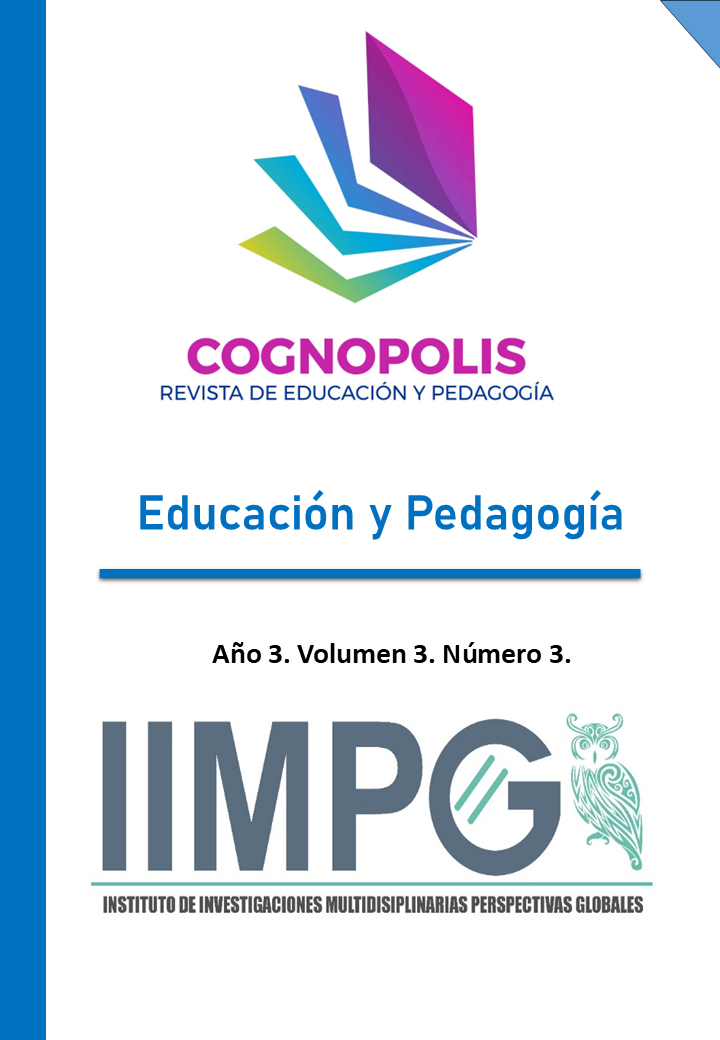Strategies for diversity in Ecuador based on emotional intelligence and educational inclusión [Estrategias para la diversidad en Ecuador desde la inteligencia emocional e inclusión educativa]
DOI:
https://doi.org/10.62574/d9bx8m29Keywords:
inclusive education, emotional intelligence, cultural diversityAbstract
Student diversity in Ecuador demands pedagogical models that integrate socio-emotional skills as fundamental elements of educational inclusion. This research analysed the strategies available to address diversity by integrating emotional intelligence as a constituent component of educational inclusion. A systematic review of 18 specialised references published between 2016 and 2025 was conducted, covering Latin American and international contexts. The results present an integrative model structured around five interrelated components: development of basic socio-emotional skills, specialised teacher training, curricular and methodological adaptation, construction of an inclusive organisational climate, and continuous impact assessment. International evidence confirms that the development of emotional skills contributes significantly to student well-being and facilitates the appreciation of diversity. The Ecuadorian context, characterised by its ethnic, linguistic and socioeconomic diversity, requires comprehensive approaches that transform teacher training processes, institutional guidelines and intersectoral coordination to ensure truly equitable educational trajectories.
Downloads
References
Caballero-García, P.-Á., & Ruiz, S.-S. (2025). Emotional intelligence and its relationship with subjective well-being and academic achievement in university students. Journal of Intelligence, 13(4), 42. https://doi.org/10.3390/jintelligence13040042
Campoverde-Zúñiga, N.-E., Esteves-Fajardo, Z.-I., Melgar-Ojeda, K.-A., & Peñalver-Higuera, M.-J. (2023). Development of emotional intelligence in 4-year-old children: Benefits and innovative practices [Desarrollo de la inteligencia emocional en los niños de 4 años: Beneficios y prácticas innovadoras]. Revista Arbitrada Interdisciplinaria Koinonía, 8(Supl. 1), 87–104. https://doi.org/10.35381/r.k.v8i1.2609
Casino-García, A.-M., García-Pérez, J., & Llinares-Insa, L.-I. (2019). Subjective emotional well-being, emotional intelligence, and mood of gifted vs. unidentified students: A relationship model. International Journal of Environmental Research and Public Health, 16(18), 3266. https://doi.org/10.3390/ijerph16183266
Crisóstomo-Munayco, F.-E. (2021). [Development of emotional intelligence in school students: A review of the scientific literature from 2015 to 2020]. Conrado, 17(82), 372–377.
Dolev, N., & Leshem, S. (2017). What makes up an effective emotional intelligence training design for teachers? International Journal of Learning, Teaching and Educational Research, 16(10), Article 6. https://doi.org/10.26803/ijlter.16.10.6
Erasmus, S., van Eeden, R., & Ferns, I. (2022). Classroom factors that contribute to emotional intelligence in the case of primary school learners. South African Journal of Childhood Education, 12(1), Article 1072. https://doi.org/10.4102/sajce.v12i1.1072
Fernández-Martínez, A.-M., & Montero-García, I. (2016). [Contributions to emotional intelligence education from early childhood education]. Revista Latinoamericana de Ciencias Sociales, Niñez y Juventud, 14(1), 53–66. https://doi.org/10.11600/1692715x.1412120415
García-Santana, D.-A., & Navarrete-Pita, Y. (2022). [Playful strategy for the development of emotional intelligence in high school students]. Revista Estudios del Desarrollo Social: Cuba y América Latina, 10(3).
García-Tudela, P.-A., & Marín-Sánchez, P. (2021). [Emotional intelligence education in school-age children: An exploratory study from the teacher's perspective]. Revista Electrónica Educare, 25(3), 85–105. https://doi.org/10.15359/ree.25-3.6
Ghita-Pirnuta, O.-A., & Cismaru, L. (2022). Developing the emotional intelligence of millennial students: A teaching strategy. Sustainability, 14(21), 13890. https://doi.org/10.3390/su142113890
Jiménez-Carrillo, J., & Mesa-Villavicencio, P. (2020). [Inclusive culture for diversity care]. Dilemas contemporáneos: educación, política y valores, 8(SPE5).
Jiménez-Rodríguez, D., Molero-Jurado, M.-D.-M., Pérez-Fuentes, M.-D.-C., Arrogante, O., Oropesa-Ruiz, N.-F., & Gázquez-Linares, J.-J. (2022). The Effects of a Non-Technical Skills Training Program on Emotional Intelligence and Resilience in Undergraduate Nursing Students. Healthcare (Basel, Switzerland), 10(5), 866. https://doi.org/10.3390/healthcare10050866
Lemus, A.-E.-P., Iglesias, S.-G., & Cobas, R.-G. (2023). [Socio-educational inclusion and attention to diversity in a higher education institution in Ecuador]. Prohominum, 5(3), 169–184.
Li, Y., & Zhang, L. (2024). Exploring the relationships among teacher-student dynamics, learning enjoyment, and burnout in EFL students: The role of emotional intelligence. Frontiers in Psychology, 14, Article 1329400. https://doi.org/10.3389/fpsyg.2023.1329400
Mejía-Caguana, D.-R., Esteves-Fajardo, Z.-I., & Mateo-Ortega, R.-A. (2023). [Inclusive care strategies: Basic competencies and necessary values for educational environments in higher education]. Episteme Koinonía. Revista Electrónica de Ciencias de la Educación, Humanidades, Artes y Bellas Artes, 6(12), 4–19.
Napolitano, F., Calzolari, M., Pagnucci, N., Zanini, M., Catania, G., Aleo, G., Gomes, L., Sasso, L., & Bagnasco, A. (2023). The effectiveness of learning strategies for the development of emotional intelligence in undergraduate nursing students: A systematic review protocol. Nurse Education in Practice, 72, 103797. https://doi.org/10.1016/j.nepr.2023.103797
Palaguaray, R.-S., Del-Pezo, J.-M., Espinoza, N.-R., & Valencia, F.-M. (2023). [Educational inclusion and attention to diversity in basic education in Ecuador]. 593 Digital Publisher CEIT, 8(6), 28–36.
Robles, D.-J., & Granja, D.-N.-O. (2022). [Implications of educating for inclusivity in higher education spaces]. Revista Academia y Virtualidad, 15(2), 29–40.
Rojas-Avilés, H., Sandoval-Guerrero, L., & Borja-Ramos, O. (2020). [Perceptions of inclusive education in Ecuador]. Cátedra, 3(1), 75–93.
Valdivieso, K.-D., Paspuel, D.-A.-V., Berrú, C.-B.-C., & Masa, B.-D.-C.-R. (2022). [Inclusive education in Latin America: Trajectories of a segmented education]. Revista de Ciencias Sociales, 28(5), 18–35.
Vintimilla, J.-M.-C., Tufiño, M.-A.-P., Sacán, J.-E.-G., & Bosisio, A. (2024). [Attention to diversity from the training of Early Childhood Education teachers]. Revista Iberoamericana de Investigación en Educación, (8).
Downloads
Published
Issue
Section
License
Copyright (c) 2025 Shaskia Verónica Villavicencio-Kuffó, Karen Mariela Cedeño-Sánchez, Nancy Claribel Ortiz-Farías, Ruth Elizabeth Álava-Macías (Autor/a)

This work is licensed under a Creative Commons Attribution-NonCommercial-ShareAlike 4.0 International License.
This work is licensed under an international Creative Commons Attribution-NonCommercial-ShareAlike 4.0 licence.
CC BY-NC-SA: This licence allows re-users to distribute, remix, adapt and build upon the material in any medium or format for non-commercial purposes only, and only provided that the creator is attributed. If you remix, adapt or build upon the material, you must license the modified material under identical terms.











